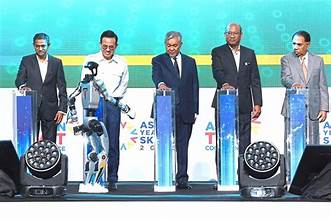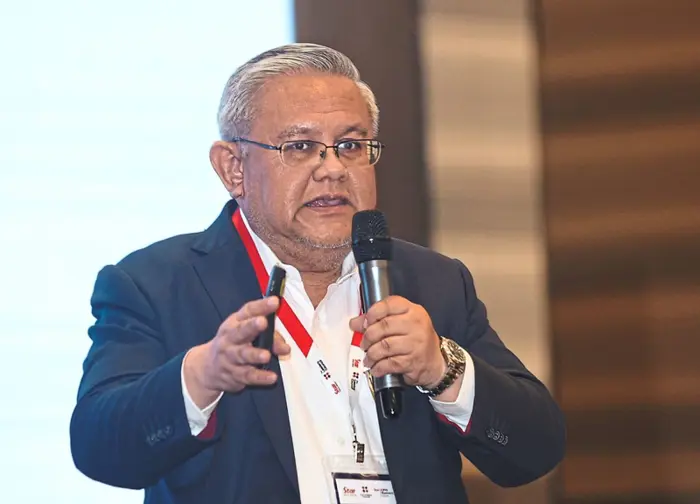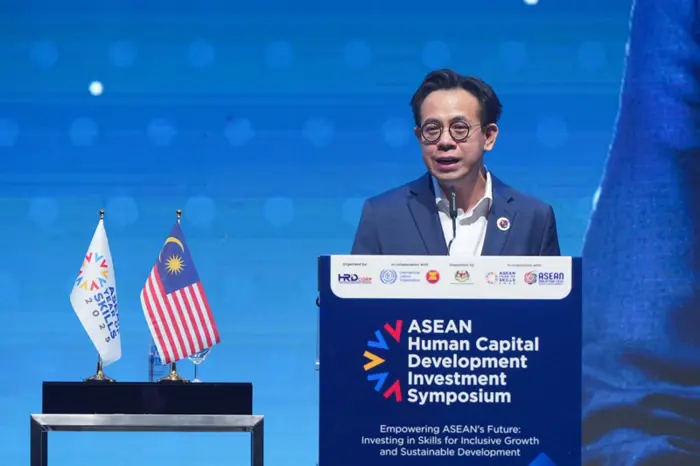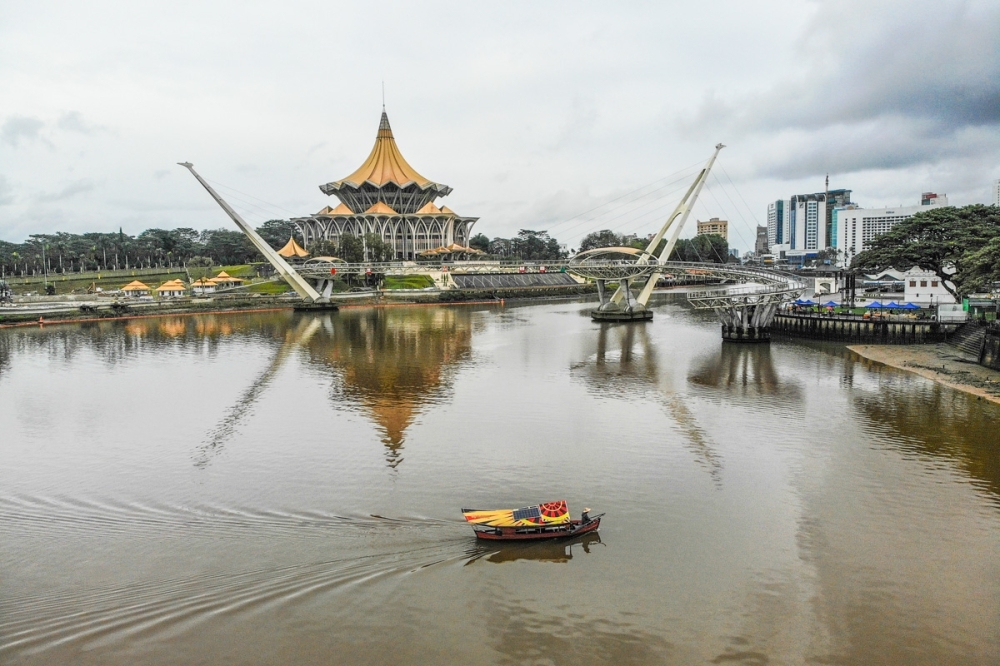
“DO I have to die in the office to go to heaven?”
Hafiz, 27, who declines to give his full name, instantly sneers when asked about the new push to return fully to the office that his company is implementing.
Hafiz works in digital marketing, first entering the job market amid the shift towards remote work or working from home (WFH) mode during the Covid-19 pandemic in 2020, and now struggles to adjust to returning to the office full-time.
Especially when, he contends, he can do his job perfectly fine from anywhere and at any time.
“Everything can be done through the Internet now, right?”
But working trends show the opposite, as many companies around the world are now pushing for workers to return to the office (RTO).
HR media platform People Matters Global reported in June 2024 that more than half of the workers in Malaysia said their employers expect them to be in the office more frequently. And the percentage of employees in Malaysia facing the call to RTO is 17% higher than the global average.
Experts say this is due to concerns about productivity, better teamwork, and fostering company culture. However, they note that WFH is not going to fully go away, as many employees, especially the younger generation, still greatly prioritise work flexibility. Instead, the experts observe that the labour market may be moving towards a more hybrid model as a compromise.
The government has also signalled a legislative shift with the introduction of amendments to the Employment Act 1955 that allow employees to formally request for flexible work arrangements due to caregiving responsibilities for children or aged parents.
Recalibration, not retreat
Human resources agency TalentCorp’s group chief executive officer Thomas Mathew says they have observed a shift back to working from the office, but adds that many are also moving towards a hybrid model.
“I would describe this shift as a recalibration, not a retreat. Many organisations are moving towards hybrid models, that is, balancing physical collaboration with flexible hours or locations.
“Remote work is not vanishing, rather it’s becoming more deliberate,” he tells the Sunday Star.
Malaysia HR Forum co-founder Arulkumar Singaraveloo adds that this recalibration is more about companies re-adapting their workplace strategies to a post-pandemic world.
A 2024 survey by the Malay-sian Employers Federation (MEF) titled “Flexible Working Arrangement: Assessing Practices and Perspectives of Private Sector Employers in Malaysia” indicated that 70.5% of companies that took part in the survey have implemented some form of hybrid work models, with some providing flexibility in working hours and others offering flexibility in the workplace.
“Flexible working arrangements (FWA) will continue to be practised, especially with the introduction of FWAs in the Employment Act 1955 with effect from Jan 1, 2024.
“But on-site work remains the norm for many employers,” says MEF president Datuk Dr Syed Hussain Syed Husman.
Speaking on the findings of the MEF survey, Mathew says it suggests that companies are tailoring flexibility to meet sectoral needs rather than completely abandoning FWA.
Many Malaysian employers shy away from full remote work as they believe it leads to decreased productivity, says Syed Hussain.
“They struggle to monitor employee performance effectively when employees are on remote work and working from home.”
Employers have also stated that worksite interactions can foster better teamwork and mentorship, and inculcate workplace culture more effectively, he says.
They believe that “remote work and WFH will, in the long run, weaken employee engagement and loyalty, making it harder to maintain a strong organisational culture,” he says.
There are also some concerns about cybersecurity and data confidentiality risks with remote work, especially if employees use personal devices, he adds.
Not just a ‘nice to have’ perk
However, Syed Hussain warns that this push for RTO may lead to higher attrition rates and reduced innovation among younger employees.
“Younger workers increasingly demand flexibility. The reluctance to embrace remote and WFH risks alienating top talents.
“Employees who experienced remote work and WFH often view full office mandates as a step backward, leading to higher attrition.
“Younger candidates openly reject traditional office setups, forcing some firms to relax policies for early career roles,” says Syed Hussain.
Mathew says survey data shows that nearly half of Gen Z (49%) and millennials (47%) in Malaysia would rather resign than accept inflexible, office-bound work models.
At the same time, he says, Malaysian workers are clocking longer hours at 17% above the global average.
“It is clear that people want flexibility, but not at the expense of balance,” he says.
But it’s not just younger workers like millennials and Gen Z who value work flexibility; Arulkumar says this is also true among dual-income households and working parents.
“Reduced commuting time, better work-life balance, and greater control over one’s schedule have led to higher satisfaction levels, particularly among employees with caregiving responsibilities.
“Balancing operational needs with individual flexibility will be crucial for talent retention moving forward,” says Arulkumar.
There is a growing resistance to inflexible mandates, he adds, and those in high demand or mobile professions are willing to resign or decline offers from companies that do not accommodate their work-life expectations.
This is especially true in sectors driven by intellectual or digital output, says Arulkumar, as performance in these industries are usually measured by results and deliverables rather than visibility at the office.
“Forcing physical presence in such sectors may backfire, as these professionals often have multiple job options and value autonomy over structure,” he says.
Hafiz could become one such example; his company issued an RTO mandate last year, and he has been searching for a suitable new job for the last few months.
“It’s quite mixed,” he says, in terms of employers offering work flexibility, “but I really want to find a WFH job.”
‘Isn’t it normal to work from office?’
Hafiz’s job is online-based, so his work can be done remotely, but Syed Hussain says some jobs simply require the workers’ physical presence at the workplace, such as in manufacturing, retail, and customer service.
Arulkumar also adds that legacy industries like banking or those with a hierarchical or compliance-heavy environment are most likely to want workers back in the office too.
Employees do understand the concerns of their employers; 28-year-old Yvonne Chong works in accounting and her company has mandated RTO since 2022.
“Isn’t working from an office normal? My job also requires me to handle sensitive numbers sometimes for our clients, so of course, I have to do the work on site.
“I don’t mind having to go back to the office because I understand why they’re asking for it for my job,” she says.
The different situations for various jobs mean that there cannot be a one-size-fits-all approach to remote work, says Syed Hussain.
“MEF advocates a balanced approach that considers both employer and employee needs on the subject of remote work and WFH.
“MEF believes that implementation of remote and hybrid work should be flexible and tailored to individual organisational context, rather than adopting a one-size-fits-all policy,” he says.
TalentCorp’s conversations with employers have also reinforced that the future of work is hybrid by design.
“That is why under Budget 2025, the government has introduced an additional 50% tax deduction on costs related to implementing FWA
“This is a one-time incentive, available from Jan 1, 2025, to Dec 31, 2027, and demonstrates a commitment to supporting this transformation at scale,” says Mathew.
Arulkumar also says he believes the hybrid model will dominate the future of work in Malaysia, a sentiment which Mathew says is reinforced by TalentCorp’s conversations with employers in the country.
“Remote and hybrid work models are here to stay.
“The question now is how we adapt these models to drive productivity, equity, and national competitiveness,” says Mathew.

Tong, G. (2025, April 27). Flex marks the spot? Focus, The Star. Retrieved from https://kr.thestar.com.my/news/focus/2025/04/27/flex-marks-the-spot
- Towards a skilled Asean workforce
 KUALA LUMPUR: The establishment of an Asean Green and Digital Skills Taskforce can unite the region and keep it future-ready, says Deputy Prime Minister Datuk Seri Dr Ahmad Zahid Hamidi. Ahmad Zahid, who is also the National Technical and Vocational Education and Training (TVET) Council chairman, said the proposed regional movement would allow for concrete […]
KUALA LUMPUR: The establishment of an Asean Green and Digital Skills Taskforce can unite the region and keep it future-ready, says Deputy Prime Minister Datuk Seri Dr Ahmad Zahid Hamidi. Ahmad Zahid, who is also the National Technical and Vocational Education and Training (TVET) Council chairman, said the proposed regional movement would allow for concrete […] - Flex marks the spot?
 “DO I have to die in the office to go to heaven?” Hafiz, 27, who declines to give his full name, instantly sneers when asked about the new push to return fully to the office that his company is implementing. Hafiz works in digital marketing, first entering the job market amid the shift towards remote […]
“DO I have to die in the office to go to heaven?” Hafiz, 27, who declines to give his full name, instantly sneers when asked about the new push to return fully to the office that his company is implementing. Hafiz works in digital marketing, first entering the job market amid the shift towards remote […] - Transformative HR – the way forward for businesses
 PETALING JAYA: The role of human resources (HR) leaders and professionals has evolved significantly and now plays a critical role in helping businesses deliver desired outcomes to shareholders. FGV Holdings Bhd group chief human capital officer and Malaysia Institute of Human Resource Management (MIHRM) deputy president Razman Radzi said the role of HR professionals in the […]
PETALING JAYA: The role of human resources (HR) leaders and professionals has evolved significantly and now plays a critical role in helping businesses deliver desired outcomes to shareholders. FGV Holdings Bhd group chief human capital officer and Malaysia Institute of Human Resource Management (MIHRM) deputy president Razman Radzi said the role of HR professionals in the […] - HR MINISTRY TO EMPOWER REGION’S WORKFORCE
 KUALA LUMPUR: In line with Malaysia’s role as the Asean chair for 2025, the Human Resources Ministry (KESUMA) and its agencies are spearheading a series of high-impact programmes. These initiatives are designed to empower human capital, promote the rights and welfare of workers, and develop a sustainable and inclusive employment ecosystem across the Asean region. […]
KUALA LUMPUR: In line with Malaysia’s role as the Asean chair for 2025, the Human Resources Ministry (KESUMA) and its agencies are spearheading a series of high-impact programmes. These initiatives are designed to empower human capital, promote the rights and welfare of workers, and develop a sustainable and inclusive employment ecosystem across the Asean region. […] - After more than 20 years, Sarawak labour law finally updated, aligning rights with peninsular Malaysia
 KUCHING, May 2 — Employees in Sarawak finally have access to the benefits their counterparts in Peninsular Malaysia are enjoying as the amended Sarawak Labour Ordinance (SLO) came into effect yesterday. Malaysian Trades Union Congress (MTUC) Sarawak Division chairman Zaidi Nasar said Sarawakian workers had waited for such labour reforms for over 20 years. Among […]
KUCHING, May 2 — Employees in Sarawak finally have access to the benefits their counterparts in Peninsular Malaysia are enjoying as the amended Sarawak Labour Ordinance (SLO) came into effect yesterday. Malaysian Trades Union Congress (MTUC) Sarawak Division chairman Zaidi Nasar said Sarawakian workers had waited for such labour reforms for over 20 years. Among […] - From 30 days to three: AI to revolutionise industrial court records, says HR minister
 GEORGE TOWN, March 14 — The Human Resources Ministry (Kesuma), through the Malaysian Industrial Court, will upgrade its digital recording system using artificial intelligence. Its minister, Steven Sim said the system could generate immediate transcripts during case proceedings to boost efficiency, reduce cost and coordinate understanding of communications of all stakeholders involved. “It aims to […]
GEORGE TOWN, March 14 — The Human Resources Ministry (Kesuma), through the Malaysian Industrial Court, will upgrade its digital recording system using artificial intelligence. Its minister, Steven Sim said the system could generate immediate transcripts during case proceedings to boost efficiency, reduce cost and coordinate understanding of communications of all stakeholders involved. “It aims to […] - STRENGTHENING WORKERS’ RIGHTS, ENHANCING PRODUCTIVITY
 Kuala Lumpur: Malaysia is firmly on track to building a more progressive and equitable labour market. 2025 marks the implementation of two key initiatives – the new Minimum Wage Order (MWO) and the Progressive Wage Policy (PWP) – aimed at strengthening workers’ rights, boosting labour productivity and fostering a more inclusive and sustainable national economy. […]
Kuala Lumpur: Malaysia is firmly on track to building a more progressive and equitable labour market. 2025 marks the implementation of two key initiatives – the new Minimum Wage Order (MWO) and the Progressive Wage Policy (PWP) – aimed at strengthening workers’ rights, boosting labour productivity and fostering a more inclusive and sustainable national economy. […] - Malaysia factory slump eases as July PMI hits five-month high
 KUALA LUMPUR: The seasonally adjusted S&P Global Malaysia manufacturing purchasing managers’ index (PMI) rose to 49.7 in July, up from 49.3 in June. The latest reading indicates the slowest decline in manufacturing sector health in five months. “Malaysian manufacturers saw pressure on operating conditions soften at the start of the second half of 2025, as […]
KUALA LUMPUR: The seasonally adjusted S&P Global Malaysia manufacturing purchasing managers’ index (PMI) rose to 49.7 in July, up from 49.3 in June. The latest reading indicates the slowest decline in manufacturing sector health in five months. “Malaysian manufacturers saw pressure on operating conditions soften at the start of the second half of 2025, as […] - Sim: Comply with ruling
 Goodwill: Sim (left) and Fahmi believe the additional holiday reflects the spirit of Malaysia Day. Procedures must be followed as Sept 15 is declared public holiday PETALING JAYA: Employers must comply with the public holiday declared for Sept 15 by either giving employees the day off with regular pay or pay public holiday rates if […]
Goodwill: Sim (left) and Fahmi believe the additional holiday reflects the spirit of Malaysia Day. Procedures must be followed as Sept 15 is declared public holiday PETALING JAYA: Employers must comply with the public holiday declared for Sept 15 by either giving employees the day off with regular pay or pay public holiday rates if […] - Employers must observe extra Malaysia Day holiday, says HR minister
 PUTRAJAYA, July 23 — Employers must comply with the declaration of Sept 15 as an additional public holiday in conjunction with this year’s Malaysia Day celebration, said Human Resources Minister Steven Sim Chee Keong. He said employers could observe the additional public holiday and pay the regular salary, or instruct their employees to work and […]
PUTRAJAYA, July 23 — Employers must comply with the declaration of Sept 15 as an additional public holiday in conjunction with this year’s Malaysia Day celebration, said Human Resources Minister Steven Sim Chee Keong. He said employers could observe the additional public holiday and pay the regular salary, or instruct their employees to work and […]
